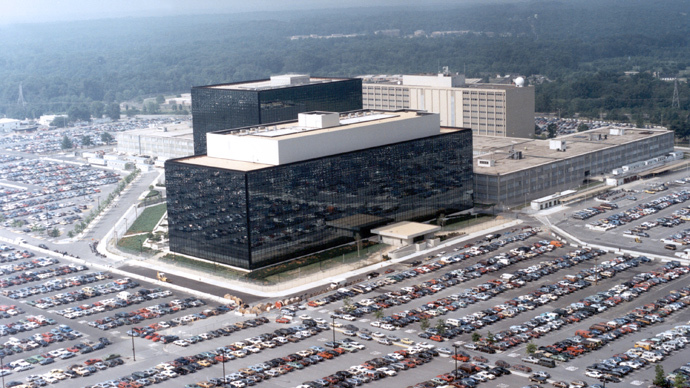80% whistleblower retaliation claims ignored in biased, ‘Trojan horse’ system

The number of whistleblowers being retaliated against is increasing every year as former federal workers warn it’s almost impossible to raise grievances through official avenues within the government, a new report reveals.
Among the employees and contractors working for the United States military and the American intelligence community, more than 8,700 have filed claims since 2001 in which they allege having faced reprisal for raising objections about supposed instances of waste, fraud or abuse, McClatchy reported on Tuesday.
According to the report, an analysis of whistleblower retaliation claims made with the Pentagon suggests the number of workers who say they suffered for speaking out has been “increasing virtually every year” since September 11, 2001.
Despite insistence from President Barack Obama with regards to expanded whistleblower protections enacted by his administration, Marisa Taylor wrote for McClatchy, “his changes didn’t go far enough to address the gaping holes in an ineffective and unwieldy bureaucracy for those who claim retaliation.”
What Obama did do, is signed an executive order before Edward Snowden revelations leaked to the public, that technically offered a whistleblower protection. “So there were other avenues available for somebody whose conscience was stirred and thought that they needed to question government actions,” Obama said after the Snowden leaks in June 2013.
READ MORE: Snowden Q&A: Indiscriminate mass surveillance is the biggest problem we face
The Whistleblower Protection Act of 1989 that was amended in 2011 is aimed to protect whistleblowers who report government agencies misconduct. Violations of the Act occur if Feds take, or threaten to take, retaliatory measures against an employee because of disclosure of information by that person. Whistleblowers are entitled to file complaints providing evidences of the violation.
“Only someone with a martyr complex would submit themselves to this system,” Tom Devine, legal director of the Government Accountability Project, told McClatchy. “We advise intelligence whistleblowers to stay away from established channels to defend against retaliation. In our experience they’ve been a Trojan horse, a trap that ends up sucking the whistleblower into a long-term process that predictably ends up with the whistleblower as the target.”
According to this week’s report, evidence exists within the Pentagon and intelligence community at large to suggest whistleblowers face an abundance of obstacles if and when they raise their voice against allegedly unjust policy.

Among the McClatchy review’s findings, Taylor wrote, are examples indicating “a battle between investigators and managers at the Pentagon inspector general’s office over the handling of reprisal claims,” as well as “an entrenched and pervasive anti-whistleblower attitude” and “delays that discourage even the most persistent whistleblower.”
McClatchy data shows that less than 20 percent of the claims since 9/11 have been investigated, with only 4 percent considered substantiated. The rest of the claims were dismissed after a preliminary analysis prior to any investigation.
Employees often can’t prove they were retaliated against with their employers insisting the reprimand measures – including dismissal from work, blocked career advancement or suspended or revoked security clearances – were taken due to performance-related reasons and not in retaliation for whistleblowing.
“There’s a view that these whistleblower reprisal cases are all these big, huge programmatic issues, when in reality many of them are about things like performance and promotions,” James A. Protin, counsel to the NSA inspector general, told McClatchy.
Yet even investigation of those retaliation claims considered substantiated was usually been delayed. McClatchy’s inquiry found that bureaucracy at the Pentagon sometimes plays a crucial role at determining the fate of the inquiries.
According to five federal officials at the Pentagon inspector general’s office, the inquiry stipulates, “its own investigators accused the office of improperly dismissing, watering down or stalling conclusions in retaliation inquiries.”
The cases that especially prone to being turned against the whistleblowers are those that are “controversial, complicated or involve high-level officials,” the federal officials said.
Sometimes managers and lawyers routinely reversed or edited findings and conclusions, like in the case of an Army intelligence officer, Mike Helms who was retaliated against in 2004 for highlighting the inadequate care for military civilians wounded in combat.
In other cases, the Feds “cherry-pick the evidence they deem as ‘relevant,” one official told the inquiry, commenting on the impeded investigation into allegations by a staff judge advocate in Quantico. In the complaint Va. Maj. James Weirick accused the US Marine Corps of meddling with the prosecution of four scout snipers who were recorded urinating on dead Taliban fighters in Afghanistan.
Furthermore, as a general trend, those officials who investigate the claims have allegedly suffered retaliation against themselves.
“It’s not surprising there are so few substantiated reprisal cases at the Pentagon,” said Sen. Charles Grassley. “There is an inherent bias against whistleblowers in the inspector general’s office.”














